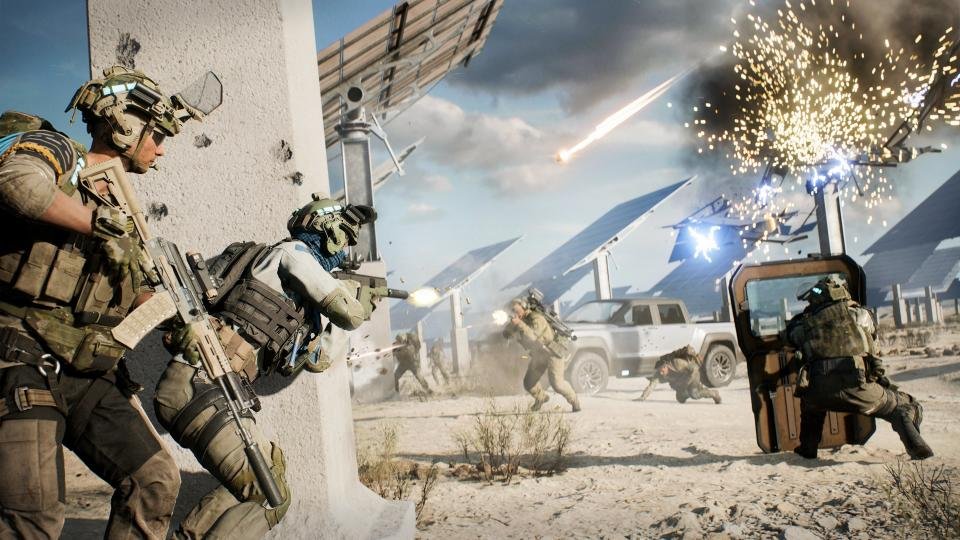Understanding Cross-Platform Play
is battlefield 1 cross platform Cross-platform play, commonly referred to as crossplay, is a feature that allows players on different gaming platforms to engage and interact with one another in the same game. This means that gamers using various devices—be it personal computers, gaming consoles, or other platforms—can join the same multiplayer game sessions and compete or collaborate seamlessly. The evolution of cross-platform play has been significant, especially in the past decade, as developers have recognized the advantages of fostering a unified gaming community.
Historically, gaming was often confined to specific consoles or systems, with players isolated from others outside their platform. However, as the gaming industry has progressed, the demand for crossplay has grown among players seeking broader interactions and experiences. The dream of an interconnected gaming world has become more feasible, leading several gaming companies to implement cross-platform functionalities in their titles.
The benefits of cross-platform play are substantial. One of the primary advantages is enhanced player connectivity. When gamers can join each other across platforms, it eliminates fragmentation and ensures that matchmaking pools are larger, reducing wait times for finding a game. Players can invite friends who may own different consoles, fostering a sense of community and inclusiveness within the gaming ecosystem. Moreover, crossplay promotes larger gaming communities, enabling diversified interactions among the player base and allowing for varied gameplay experiences.
Furthermore, streamlined multiplayer experiences across different platforms can significantly improve gameplay quality. Matchmaking algorithms can balance teams more efficiently, leading to more competitive and enjoyable matches. As we explore the specific case of ‘Battlefield 1’ and its place within this crossplay landscape, it is essential to consider how these dynamics impact player engagement and the overall gaming experience.
Battlefield 1: Overview of Game Platforms
Battlefield 1, released in 2016 by Electronic Arts and developed by DICE, is set in the backdrop of World War I, offering players an immersive experience that blends historical authenticity with thrilling gameplay. This title is available on several platforms, specifically PC, PlayStation 4, and Xbox One, making it accessible to a broad audience of gamers. Its release on these platforms has contributed significantly to its popularity, allowing it to amass a dedicated player base and foster a vibrant community.
The gameplay mechanics of Battlefield 1 focus on large-scale battles, strategic team coordination, and a diverse range of gameplay modes, including the iconic Conquest and Operations modes. Players engage in both infantry combat and vehicle warfare, utilizing an array of historical weapons and machines. The game effectively balances realism and fun, which is a hallmark of the Battlefield series. Player engagement is sustained through regular updates, seasonal events, and community challenges, which keep the content fresh and encourage multiplayer collaboration.
However, a significant aspect of discussion among the community pertains to is Battlefield 1 cross platform functionalities. Presently, Battlefield 1 does not support full cross-play. Players on PC cannot engage with those on consoles, which limits the potential for friends to play together across different systems. The varying performance capacities and control schemes between the platforms have been cited as reasons for this restriction. Nonetheless, the game’s cross-platform functionalities in this context highlight the ongoing debate in the gaming community regarding the importance of cross-play in popular titles, contributing to players’ overall experience and satisfaction.

Is Battlefield 1 Cross Platform? The Answer Explained
As players debate the possibility of crossplay within their favorite titles, a common question arises: is Battlefield 1 cross platform? Unfortunately, the answer is no. Battlefield 1, released by EA and DICE in 2016, has not implemented crossplay across its various platforms, which include PlayStation, Xbox, and PC. This means that players on one console cannot compete or cooperate with those on another, presenting a limitation for online multiplayer experiences.
The lack of cross-platform functionality in Battlefield 1 can be attributed to several factors. First and foremost, the developers faced significant technical challenges in ensuring balance between systems. Each platform has distinct capabilities, including performance and control schemes, which can create disparities in gameplay. For instance, PC players often benefit from higher frame rates and customizable settings, while console players have a standardized experience. Merging these experiences into a seamless crossplay ecosystem could compromise fairness and competitiveness.
Additionally, design choices also played a crucial role in this decision. The Battlefield series has historically catered to various platform-specific communities, each with its own norms and gaming styles. Developers may have opted to maintain the integrity of these communities by keeping the gameplay environment unified within the platform. This decision is often reflected in player preferences, as many gamers express comfort within their respective ecosystems rather than engaging in mixed-platform play.
Community reactions to the absence of crossplay in Battlefield 1 have been mixed. While many players have expressed disappointment over this exclusion, others understand the reasoning behind it. Players often cite their preferred gaming experiences and interactions, suggesting that while crossplay could open new avenues for collaboration, it may also lead to imbalances that detract from enjoyment. Ultimately, the answer to whether battlefield 1 is cross platform remains firmly rooted in the decisions made by its developers.
Future of Cross-Platform Play in Battlefield Series
As the gaming landscape continues to evolve, the prospect of cross-platform play in the Battlefield series remains a prominent topic among players and developers alike. The increasing demand for more inclusive and flexible multiplayer experiences has led to a broader trend in the industry, where crossplay is becoming commonplace in many modern games. Players are looking for ways to connect with friends across different gaming platforms, and this need is reshaping how developers approach game design.
The future of cross-platform play in the Battlefield series appears to be optimistic. Recent industry trends indicate that AAA titles are moving towards integrating crossplay functionalities, enabling gamers on PC, PlayStation, and Xbox to compete and cooperate in the same online spaces. This shift not only enhances accessibility but also boosts the player base, ensuring that matchmaking is quick and engaging, a crucial element for competitive games like Battlefield.
is battlefield 1 cross platform Electronic Arts (EA), the publisher behind the Battlefield series, has also recognized the potential benefits of implementing cross-platform capabilities. Given their commitment to listening to player feedback and adapting to the gaming community’s needs, it is reasonable to anticipate that future Battlefield installments may prioritize crossplay features. Players can expect enhanced experiences that leverage the strengths of different platforms, including potentially improved graphics, varied gameplay mechanics, and broader community engagement.
Developers are likely to release updates and patches focusing on crossplay functionalities, which may enhance existing titles, including Battlefield 1. This commitment not only caters to the growing demand for cross-platform gaming but also positions the franchise favorably in an increasingly competitive market. In conclusion, as cross-platform play becomes a standard rather than an exception, the Battlefield series stands a good chance of evolving in tandem, promising a comprehensive and enjoyable multiplayer experience for players across diverse platforms.










